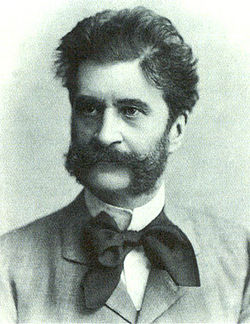| Waltzes | - Sinngedichte, Op. 1 (1844)
- Gunstwerber, Op. 4 (1844)
- Sträußchen, Op. 15 (1846)
- Klange aus der Walachei, Op. 50 (1850)
- Frohsinns-Spenden, Op. 73 (1850)
- Lava-Ströme, Op. 74 (1850)
- Rhadamantus-Klänge, Op. 94 (1851)
- Idyllen, Op. 95 (1851)
- Mephistos Höllenrufe, Op. 101 (1851)
- Liebeslieder, Op. 114 (1852)
- Phönix-Schwingen, Op. 125 (1853)
- Novellen, Op. 146 (1854)
- Nachtfalter, Op. 157 (1855)
- Glossen, Op. 163 (1855)
- Man lebt nur einmal!, Op. 167 (1855)
- Abschieds-Rufe, Op. 179 (1856)
- Phänomene, Op. 193 (1857)
- Abschied von St. Petersburg, Op. 210 (1858)
- Hell und voll, Op. 216 (1859)
- Promotionen, Op. 221 (1859)
- Accelerationen, Op. 234 (1860)
- Immer heiterer, Op. 235 (1860)
- Grillenbanner, Op. 247 (1861)
- Klangfiguren, Op. 251, (1861)
- Dividenden, Op. 252
- Karnevalsbotschafter, Op. 270 (1862)
- Leitartikel, Op. 273 (1863)
- Morgenblätter, Op. 279 (1863)
- Studentenlust, Op. 285 (1864)
- Aus den Bergen, Op. 292 (1864)
- Bürgersinn, Op. 295 (1865)
- Flugschriften, Op. 300 (1865)
- Wiener Bonbons, Op. 307 (1866)
- An der schönen blauen Donau, Op. 314 (1867)
- Künstlerleben, Op. 316 (1867)
- Die Publicisten, Op. 321 (1868)
- G'schichten aus dem Wienerwald, Op. 325 (1868)
- Illustrationen, Op. 331 (1869)
- Wein, Weib und Gesang, Op. 333 (1869)
- Freuet euch des Lebens, Op. 340 (1870)
- Neu Wien, Op. 342 (1870)
- Tausend und eine Nacht, Op. 346 (1871)
- Wiener Blut (waltz), Op. 354 (1873)
- Carnevalsbilder, Op. 357 (1873)
- Bei uns z'Haus, Op. 361 (1873)
- Wo die Zitronen blühen, Op. 364 (1874)
- Du und du, Op. 367 (1874)
- Cagliostro-Walzer, Op. 370 (1875)
- O schöner Mai!, Op. 375 (1877)
- Rosen aus dem Süden, Op. 388 (1880)
- Nordseebilder, Op. 390 (1880)
- Kuss-Walzer, Op. 400 (1881)
- Frühlingsstimmen, Op. 410 (1883)
- Lagunen-Walzer, Op. 411 (1883)
- Schatz-Walzer, Op. 418 (1885)
- Wiener Frauen, Op. 423 (1886)
- Donauweibchen, Op. 427 (1887)
- Kaiser-Jubiläum-Jubelwalzer, Op. 434 (1888)
- Kaiser-Walzer, Op. 437 (1888)
- Rathausball-Tänze, Op. 438 (1890)
- Gross-Wien, Op. 440 (1891)
- Seid umschlungen, Millionen!, Op. 443 (1892)
- Gartenlaube Waltz, Op. 461 (1894)
- Trau, schau, wem!, Op. 463 (1895)
- Farewell to America
|
|---|
| Polkas | - Herzenslust, Op. 3
- Explosions-Polka, Op. 43
- Champagner-Polka, Op. 211 (1858)
- Tritsch-Tratsch-Polka, Op. 214 (1858)
- Demolirer, Op. 269 (1862)
- Vergnügungszug, Op. 281 (1864)
- 'S gibt nur a Kaiserstadt, 's gibt nur a Wien!, Op. 291
- Lob der Frauen, Op. 315
- Postillon d'amour, Op. 317 (1867)
- Leichtes Blut, Op. 319 (1867)
- Figaro-Polka, Op. 320 (1867)
- Ein Herz, ein Sinn!, Op. 323
- Freikugeln, Op. 326 (1868)
- Éljen a Magyar!, Op. 332
- Im Krapfenwald'l, Op. 336 (1869)
- Die Bajadere, Op. 351
- Vom Donaustrande, Op. 356
- Bitte schön!, Op. 372 (1875)
- Auf der Jagd, Op. 373 (1875)
- Banditen-Galopp, Op. 378 (1877)
- Waldine, Op. 385 (1879)
- Neue Pizzicato Polka, Op. 449
|
|---|
